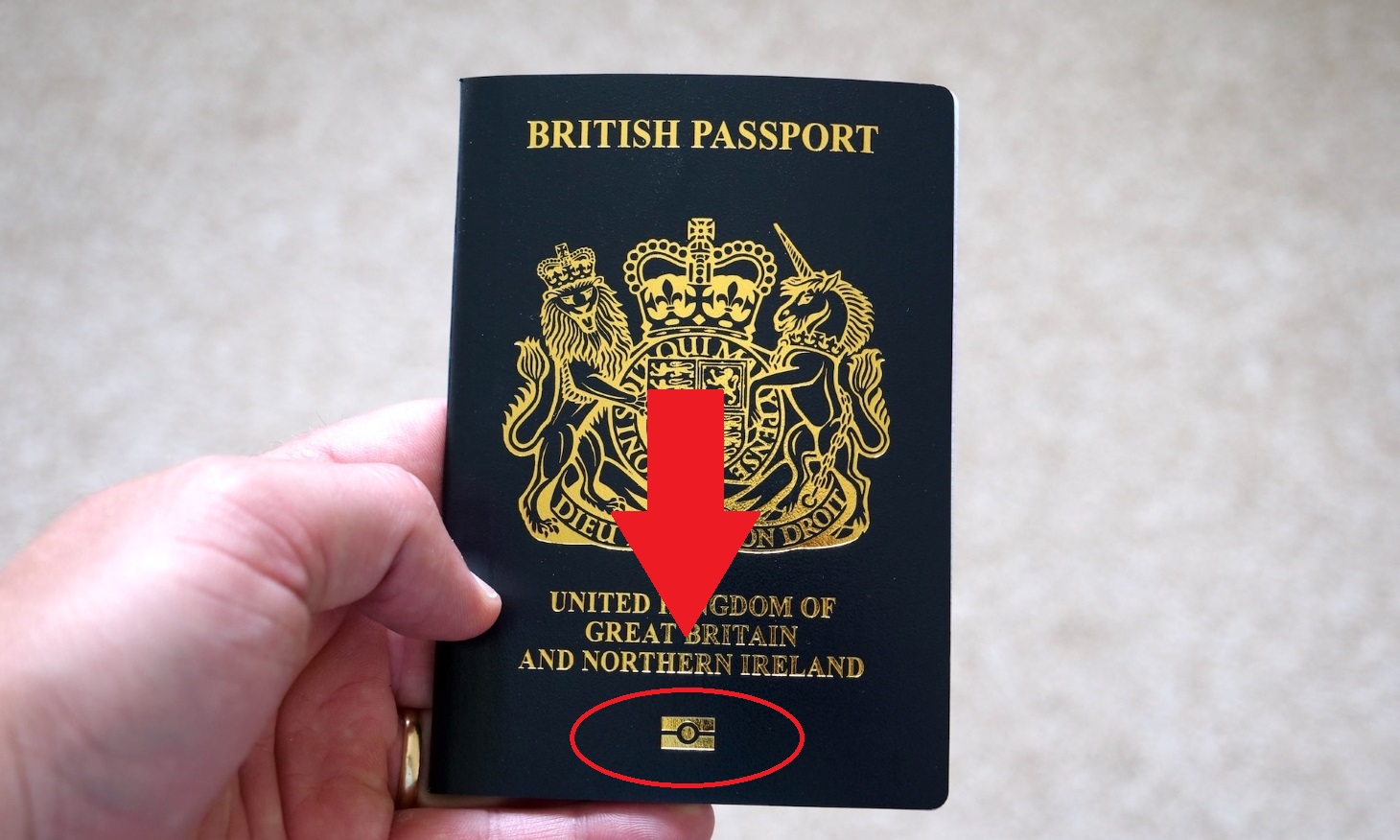What Is a Biometric Passport?
In an era where identity fraud is a growing concern, governments have been taking significant steps to enhance security measures, especially when it comes to identification technology.

The United Kingdom is no exception, as it has transitioned to using biometric passports to bolster border control and safeguard the personal information of its citizens. In this short breakdown, we will explore what biometric passports are, how they work, and what benefits they offer to UK citizens. Additionally, you’ll find out if you need one as well.
Biometric Passport: A Revolution in Identity Verification?
What Is It?
In a way, a biometric passport (often referred to as an e-passport), is a high-tech evolution of the traditional travel document. It incorporates advanced security features that transform a regular ID into a powerful verification tool.
But what exactly sets it apart from its conventional counterpart?
The thing is, any epassport holds an embedded microchip. This chip stores your personal data (your full name, digital photograph, date of birth, and other biographical information) and some other details (for example, the document number and expiry date). These electronic passports, marked with the international biometric symbol, enable quicker and more secure verification, making international travel far more efficient.
How Does It Work?
Its heart lies in the microprocessor chip, which securely stores all your personal information. Only authorized parties, such as border control officials, can access it. Let’s break down how a biometric passport works and how its security features protect your data.
1. Fingerprints, Facial Recognition, Iris Scans: As the term suggests, one of the key features of a biometric passport is that it stores biometrics—your fingerprint data, digital photograph, and iris scans, all encrypted and secured within the microchip. When you present your passport to the border control official or airport security, facial recognition technology compares the photo on the photo page with your current appearance. As an additional layer of identity verification, the fingerprints and retinal scans stored in the microchip of your biometric passport are also verified.
2. Public Key Infrastructure (PKI) and Encryption: To prevent unauthorized reading of the data stored in the e-passport chip, it is protected by robust encryption. The chip contains an encryption key, and the border control official’s scanner uses a public key infrastructure (PKI) technology to decode the information. This ensures that only legitimate authorities can access your personal data.
3. Preventing Unauthorized Reading: Any e-passport is designed to prevent illegal access to the information stored in it. Here’s how it works: the cover contains a mesh made of RF-blocking metal. So, if a biometric passport is closed, the chip is shielded by the mesh, and the data cannot be accessed. The microchip only becomes readable (i.e. available for identity verification) when the passport is open.

The Advantages of an E-Passport
There are numerous benefits, making your life easier and enhancing security in various ways:
- Faster Entry: Biometric passports allow for faster entry into many countries, as border control officials can quickly and accurately identify people at epassport gates using the embedded microchip.
- Enhanced Security: The advanced security features of biometric passports, including encryption and biometric data, reduce the risk of identity theft and fraud, making international travel more secure.
- Global Compatibility: Biometric passports are recognized and accepted in many countries around the world, facilitating international travel.
- Preventing Unauthorized Reading: The design of a biometric passport prevents unauthorized reading of your personal information, adding an extra layer of security–it can only be read at an ePassport gate.
Do I Need a Biometric Passport?
Now that we know what it is (and how many advantages it has), you might be wondering if you need a biometric passport. First of all, you may already have one.
How Do I Know If My Passport Is Biometric?
There are two options to check it, both being quite easy:
- Check the Date of Issue: The thing is, all travel documents issued to UK nationals since 2010 are biometric. So, if you got yours in 2010 or later, you can be sure that it contains your biometrics.
- Inspect the Front Cover: If you have a biometric passport, there has to be a golden camera symbol at the very bottom of its cover. You can’t miss it:

How Do I Get a Biometric Passport?
If you don’t have one, getting it will be pretty easy. Considering what we’ve said above, all UK passports issued today are already biometric, which means you can apply as usual. Remember that your current passport must be surrendered upon issuance of a new one.
As for the picture for your new passport, the requirements stay the same and you don’t need any special biometric technologies to get it. For example, you can get a new passport photo on our website. Then, you can either print it out or submit your passport application online.
What If I Still Have a Traditional Passport?
It is not exactly mandatory to get a biometric one, but any travel document is valid for 10 years at best. And if you have an ‘old-school’ passport, you got it before 2010 (since 2010, they only issue biometric ones, remember?). This means it’s already expired and cannot be used for travel. So, you will have to replace your traditional passport sooner or later–it’s already required in some cases.
For example, if you’re travelling to the United States under the Visa Waiver Program, having a biometric passport is a strict requirement.
And, similarly to the United States Visa Waiver Program, other countries may also have their own rules and regulations regarding travellers’ documents.

If you’re in doubt, there aren’t any downsides to getting a biometric ID. On the contrary, as technology evolves and documents that include biometrics become more widespread, travellers with e-passports get faster processing and entry through dedicated ePassport gates. So, while you may not need a biometric passport for every possible journey, having one can certainly make your travel experiences smoother and more efficient.
In Conclusion
In an interconnected world with an increasing threat of identity theft, biometric passports represent a significant step forward in security and identity verification. These electronic passports, with their embedded microchips and advanced security features, provide UK citizens with a reliable and secure means to gain entry into other countries while safeguarding all their personal information.
So, the next time you open the front cover of your biometric passport and see that chip, remember that it’s not just a symbol of modern technology; it’s a powerful tool that’s helping to make international travel safer and more efficient for us all. Travel with confidence, knowing that your data is protected, and enjoy the benefits of your new passport that’s designed to make your journey smoother and more secure.